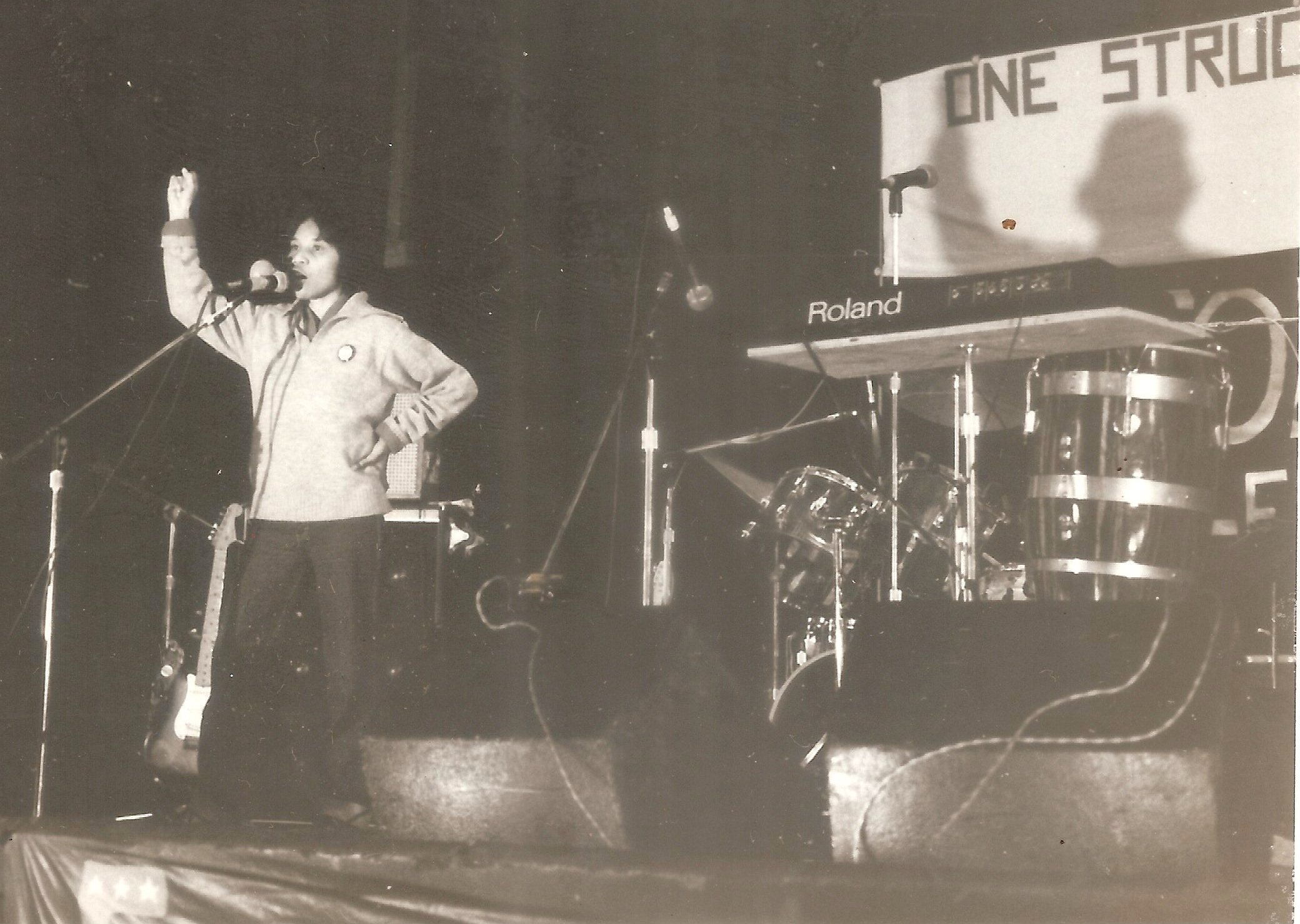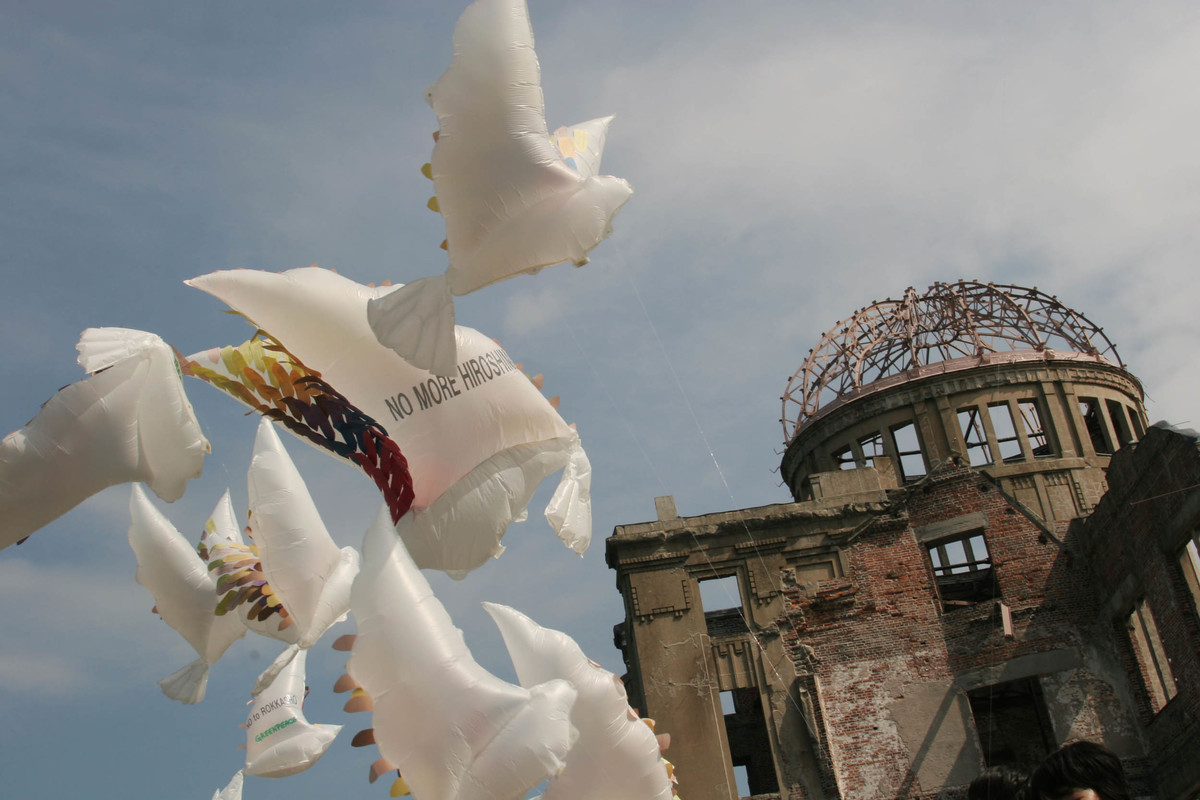“Another world is not only possible, she is on her way. On a quiet day, I can hear her breathing.” – Arundhati Roy
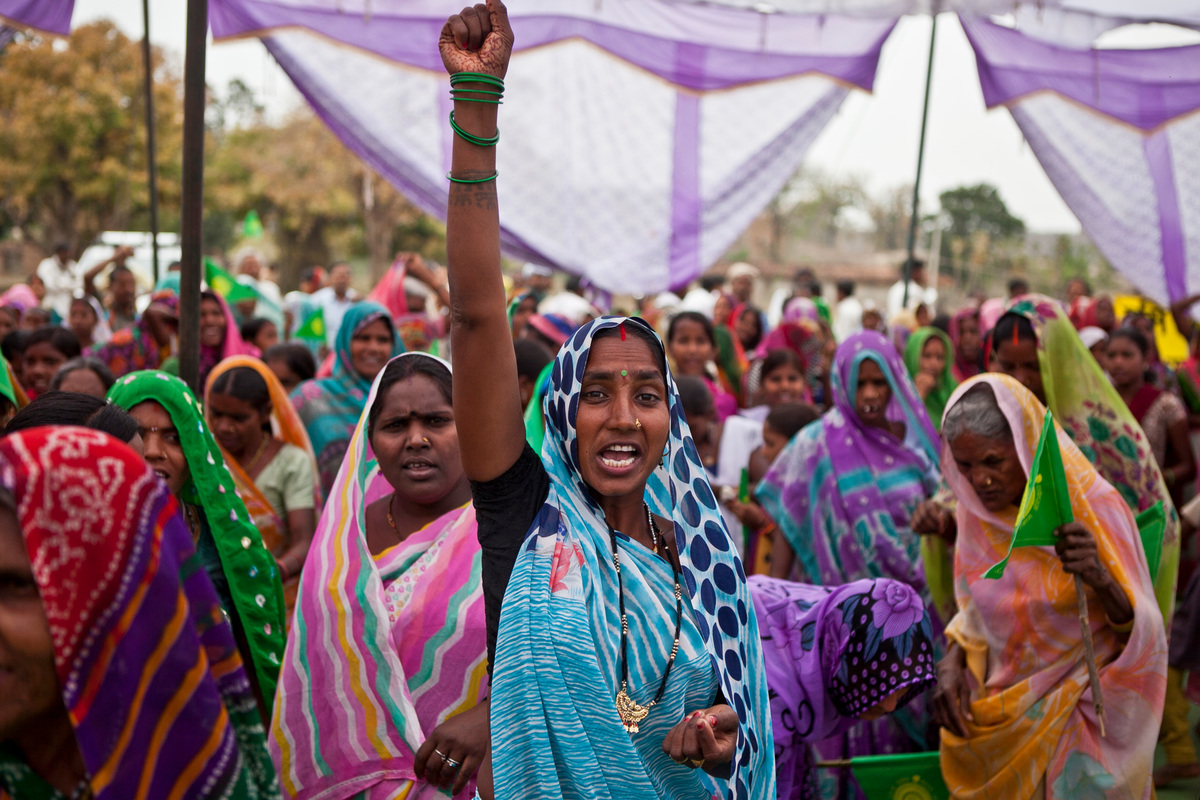
Women celebrate a decision by the Indian government to stop the Mahan coal block from mining. These women were instrumental in campaigning for this to not go ahead (2015)
And indeed she is…
These are the heroes, the ones who serve their community with hope and inspiration, and who are using their skills to lift and empower others.
Whether it’s defending a forest, working towards protecting an entire ecosystem, or simply reaching others through the power of music, here are just a few women from around the world who are leading the way and giving the hope that yes, another better world is definitely possible.
Kanahus Manuel – Canada
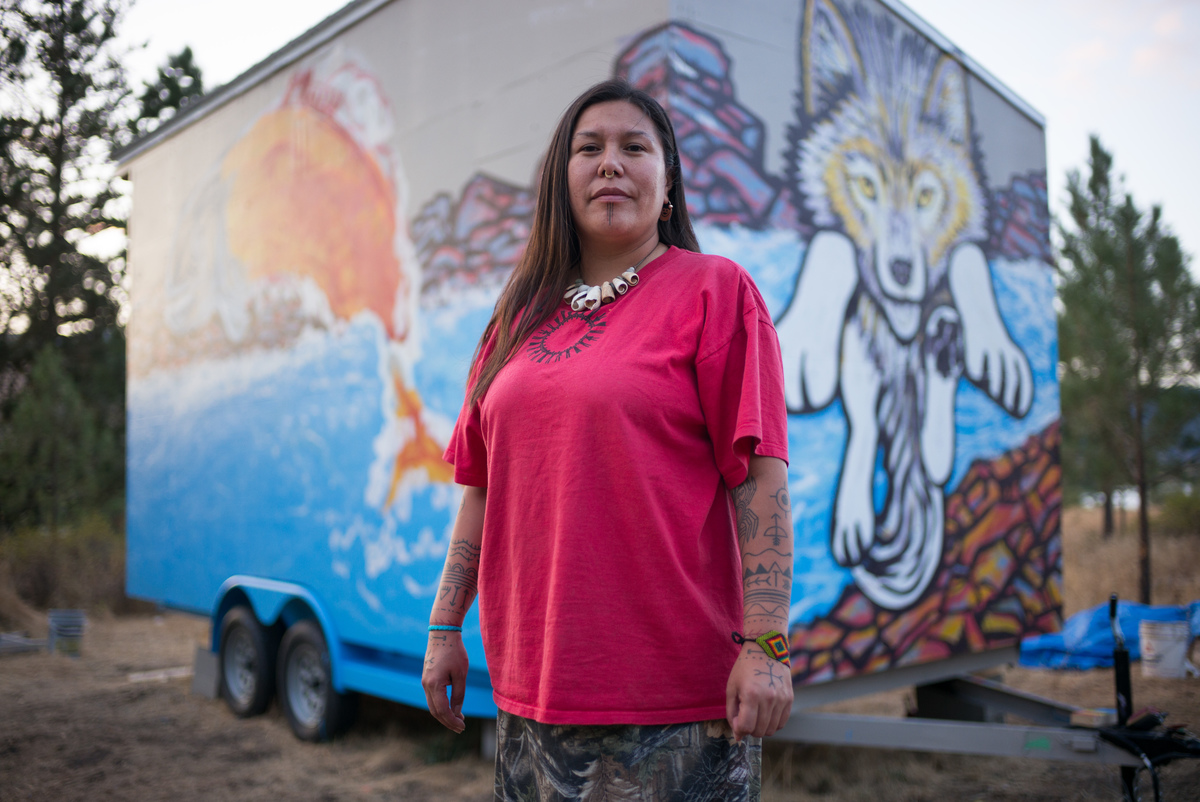
Kanahus Manuel from the Tiny House Warriors, a group of Indigenous Secwepemc people from Canada who are building tiny houses in the path of the massive Kinder Morgan tar sands oil pipeline’s planned route through their territory. The house is a symbol of the home they are fighting to protect, creating hope and community in the face of destruction
Kanahus Manuel is an Indigenous leader from the Secwepemc First Nation territory in British Columbia, Canada. She has lived her entire life in the region and is spearheading her community’s fight to protect it from Kinder Morgan’s controversial Trans Mountain pipeline project.
“As Indigenous women, freedom fighters and land defenders, we have no other choice, even though we’re in a very vulnerable situation. We become a target and feel unsafe because we have to face pipeline construction work camps full of men. This is the reality for Indigenous women when they stand up to fight and has been my reality my whole life.
“I was born into this movement. When I was 4 years old, the first memory I have of fighting for Indigenous rights is when my parents took me and my twin sister on a train to Ottawa to fight for our rights. This is an intergenerational struggle – it won’t stop with me. It’s going to continue until we have all of our rights recognised.”
Follow the Tiny House Warriors Facebook page to keep track of Kanahus and her community’s fight. You can also support them via crowdfunding and donations, and by opposing the construction of the Tar Sands pipelines.
Sandra Guzmán – Mexico

Sandra Guzmán, the first female Mexican scientist to travel to Antarctica
Sandra Guzmán is on a mission to empower women in science, fight climate change, and protect one of the most vulnerable ecosystems on the planet: Antarctica. In fact, she’s in the Antarctic right now with 78 other female scientists researching the impacts of rising temperatures and melting ice on the region’s wildlife.
“In general, I have learned that, as women, we have to make our voices sound strong, not to antagonise men, but because of the skills and abilities we have to bring innovative and creative ideas to the old ways of doing things. I believe that the challenge we face in this world is not only to ensure equity between men and women, but also to give ourselves the opportunity to reduce the barriers and collaborate among ourselves.”
Follow Sandra’s journey on her Facebook and Twitter accounts, and join her fight to protect the Antarctic.
Hindou Oumarou Ibrahim – Chad
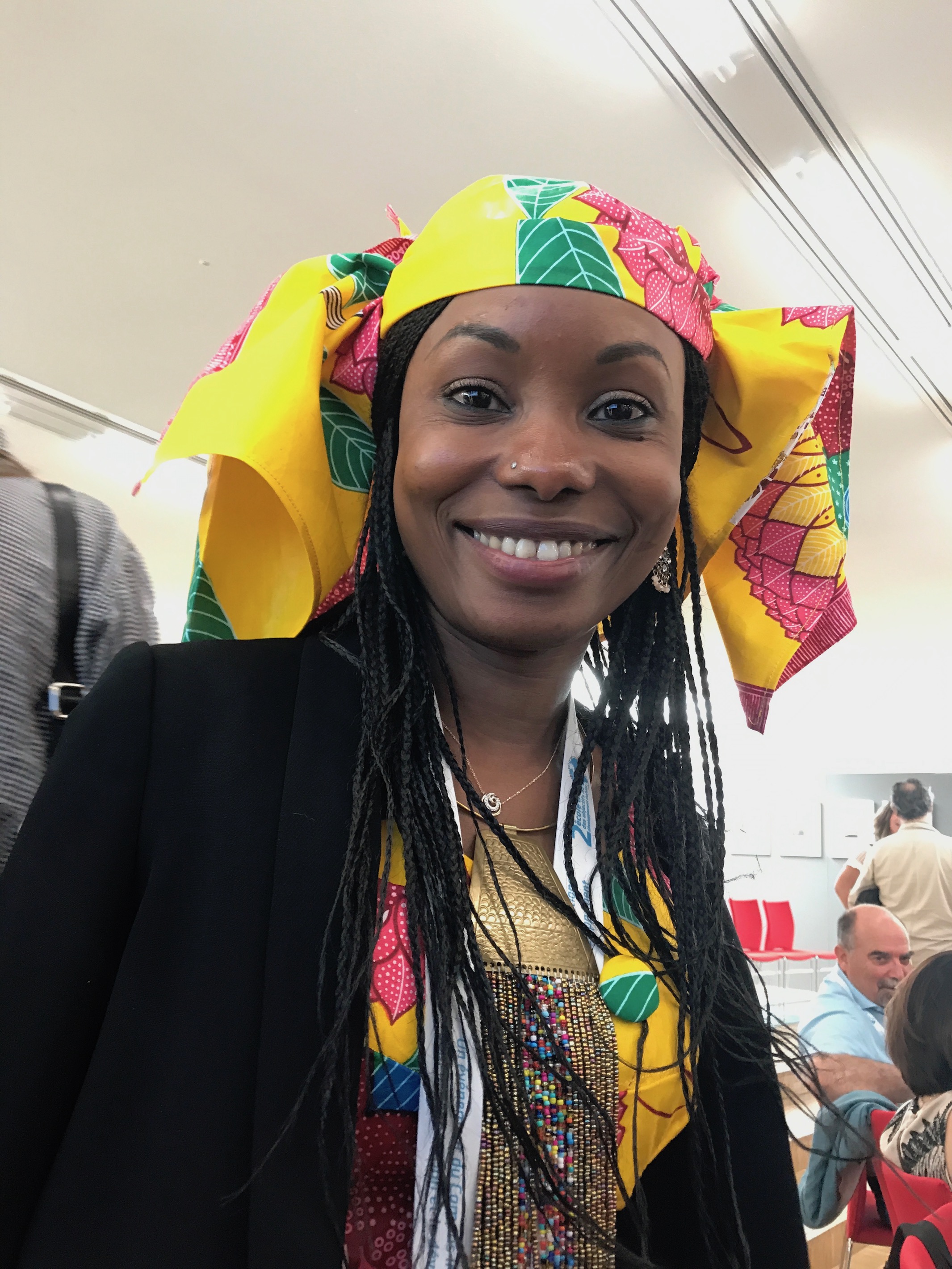
Hindou Oumarou Ibrahim, environmental activist and geographer
A member of the 2017 National Geographic Emerging Explorers‘ class, Hindou Oumarou Ibrahim explores how the traditional knowledge of Indigenous people can be harnessed in the fight against climate change with a focus on adaptation and mitigation.
Originating from the traditionally nomadic Mbororo community in Chad, she understands the mounting challenges her community and many others around the world face as a result of climate change. Using her expertise and voice she brings Indigenous expertise and scientific knowledge together to develop solutions that provide energy, food and medicine for the communities in Chad.
“Traditional knowledge and climate science are both critically important for building resilience of rural communities to cope with climate change, and Indigenous peoples are ready to share their knowledge to help to mitigate and adapt,” she explained to the UN.
Her organisation, Association for Indigenous Women and Peoples of Chad (AFPAT), is using 3D mapping tools to show the benefits of using Indigenous peoples’ knowledge to solve climate problems.
To learn more about Hindou’s work and initiative, visit her website. To stay connected with her activities follow her journey on Twitter.
Ninda Felina aka DJ Ninda – Indonesia
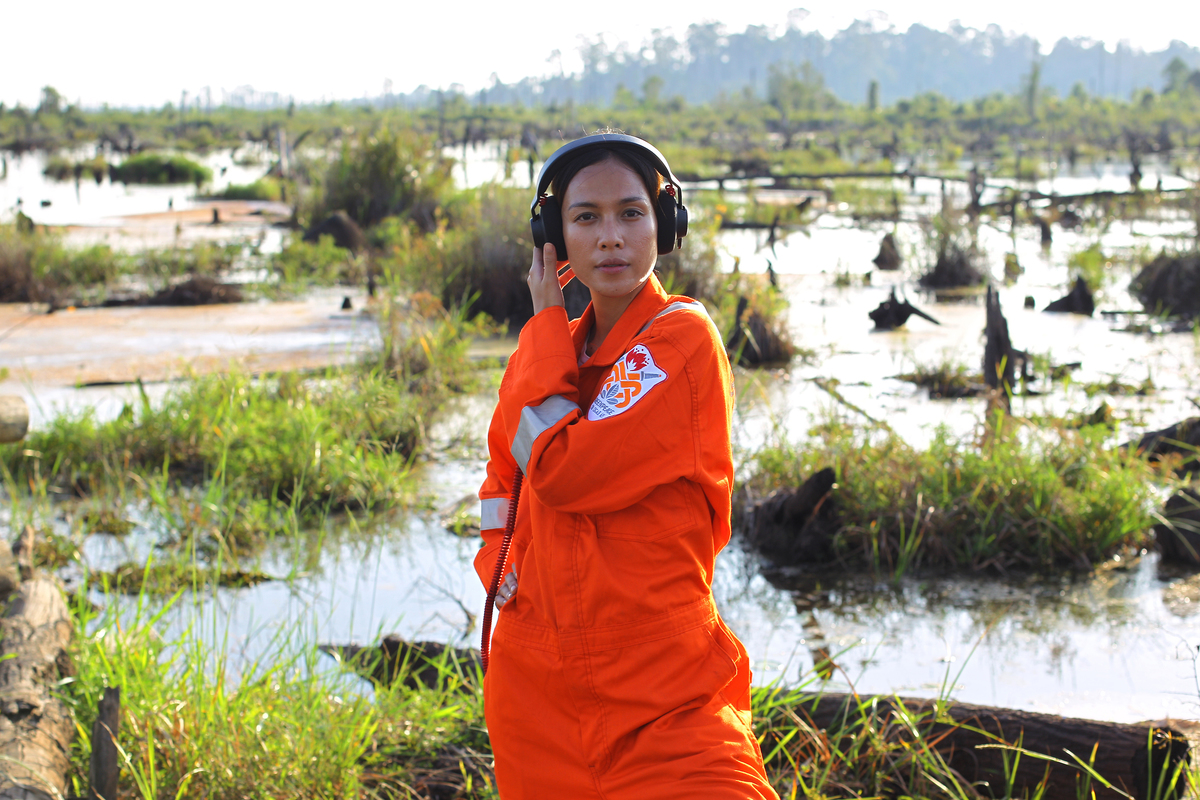
Ninda Felina, a DJ and model, joins as a volunteer for the Greenpeace Indonesia Forest Fire Prevention team
When it comes to global deforestation, Indonesia is high on the list. Not only does this mean the endangerment and loss of many precious species like orangutans, but it also subjects Indonesia and its neighbouring countries to a suffocating forest fire haze each year. For Ninda Felina, Indonesia’s deforestation also means losing something else – its sounds.
As a DJ, Ninda is obviously in tune to the environment around her, so she collaborated with the Save Our Sounds project – to record the unique sounds of the forest, turning them into music, and bringing that back into the city where she not only entertains, but also educates her audience. Using this creative method means taking people along on her journey through the deep jungle. By experiencing the sounds of Indonesia’s unique wildlife, they too, will feel inspired to protect the rainforests.
“Learning to really listen to the forest inspired me, and I hope that these sounds will not only give new colour to my music but also inspire others to start paying attention to the forest and take action to preserve it.”
Find out more about Save Our Sounds, and even create your own track here. Follow DJ Ninda on Facebook, Instagram, and Soundcloud.
Shuk-Wah Chung is a Writer and Content Editor for the Communications Hub at Greenpeace East Asia. Follow her on Twitter here.

